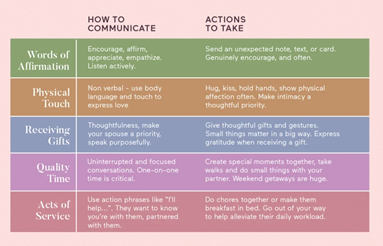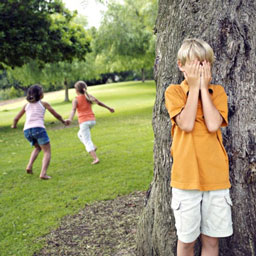A sermon for the 2nd Sunday of Epiphany by Mother Katie
One of my favourite games as a child was hide and seek. I loved the idea of being found – so I didn’t always choose the best places. I might leave a foot out, or giggle when I heard footsteps. Hiding was fun BUT being found was the real delight.
In today’s readings we discover the God who finds us – even in hidden times and hard and unexpected places. The verb to find can also mean to discover, to locate, to notice, to observe, and to see.
And because God sees us we don’t even have to give ourselves away – God knows our location and watches and notices – even when we are not aware – we are being found.
So in today’s Gospel – just like the game when being found is about taking turns – Jesus finds Philip, Philip finds Nathaniel, and tells him of finding Jesus. Jesus sees Nathanial under the tree and Nathaniel sees his Messiah in this smallest observation. He knows he is found.
I think we are in a time right now when we might need to take turns in finding each other – because it can feel pretty hard right now. Many of us are running on empty after a year of this pandemic; all sorts of losses are being grieved – not just people – though we have painfully lost them – but so much of life that brought joy. In our homes, some of us on our own, life can feel hidden and as if no one will find us again.
Our Gospel promises this is not so – we are seen – noticed – and found. And in our being found, we are called to find others. But in order to find them we have to learn to see things like Jesus does – for so often the way the world teaches us to see is only designed to blind us.
Take that comment in today’s Gospel “can anything good come out of Nazareth?” – we hear people say the same thing today – judging people on where they come from, what they own, what type of background they have. And Jesus absolutely chooses to be born and live and die in the worst of it – so that we can never dismiss those places and people again – and so that if we are from those places – and if we have those backgrounds – we know we are seen and found whatever the world might say.
And the way Jesus sees is so very interesting. In Simon the disciple and fisherman Jesus sees Peter the rock and foundation of the church – not who he is but who he will become – in Nathanial he sees not a snob who thinks location matters – but a true Israelite. The way Jesus invites us to see is to see the best. To find the good in each other – and to remind each other of that good – especially when we have forgotten or hidden it for too long.
And for me that has always been central to vocation – to God’s calling of us – it is about being found and naming the good.
Now, we’ve all been through a very hard year, so we might be forgetting our best selves at this point in the pandemic – and so it is good to remind each other of our calling – that we are found in Christ.
Because we really need to know that – if we are to offer good to others. We can not give from that we do not have. If at St James we want to be a place of good in our community – we need to know and remind each other of our goodness too.
We’ve just set up a new Message in a Bottle section of the website to help us all reach out in this third lockdown – you can send your own message of good – or go and read the contributions already made by Geoff and Fr Clive. If you are not one for writing perhaps you might pick up the phone and call someone – or send a gift – or offer to shop for a vulnerable person or take someone for their vaccine.
According to psychologists there are 5 love that we can use to help each other feel loved, seen and good; and each of us use all of them but have our own preferred love language.
They are touch, words of affirmation, gifts, acts of service and quality time. Quite often we automatically love others in our own love language – so if you are someone whose language is gifts you will give things – if your primary language is words of affirmation you will liberally give compliments and positive feedback – and so on. Each of us will only ever feel really loved and found when we are loved in our primary love language – which is why you can have two people who love each other very much – but if they are both loving in their own language and not the others – it might be that neither feels very loved at all.
So, according to the theory we must actively try and love people in their language – that is how they feel seen and found. And I would add we need to actively appreciate when someone is trying to love us in a language that might not be our first choice.
This week I’ve experienced all 5 languages in ministry: one parishioner sent me a necklace and scarf for no other reason than to just to brighten my day (the language of gifts); one person called to say how important I’d been in a time they were suicidal (words of affirmation); another called and we spent an unrushed hour on the phone talking (quality time); one person dropped off luxury food that I was able to take to the Food Bank (acts of service); and my cats have ministered to me – and me to them – through touch.
For those who need human touch the pandemic has been especially hard – and doubly so for those who live alone. As those who know me well – this isn’t a love language of mine – I’m rather the opposite but I’ve taken to praying for those who miss touch – it is one of the most simple things we can offer – a hug – the slight touch of a hand in sympathy – the hand shake at the end of a funeral. But its loss is perhaps one of the deepest griefs we are holding right now. Staying apart has of course become the new sign of affection – but we might need Jesus eyes to see it as such – and help us find the good.
In our readings we see Jesus loving through words of affirmation – telling Nathanial he was a true Israelite and without deceit; Eli loving through acts of service and being in the Temple. And the disciples loving, giving quality time to follow Jesus as he calls.
My challenge to us this week then is to see and find the people around us who might need a bit of encouragement this week – and then using one of the 5 love languages – can we remind them how God sees them – and that they are good?
Remembering that God refuses to leave any of us lost – and promises to always find us – and to call us. And in the calling and in the finding – we become our best selves – equipped to call and find others too.
Amen.

